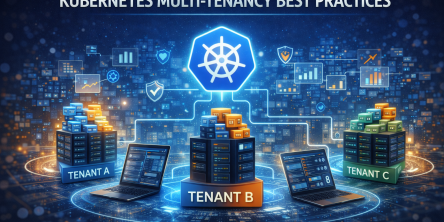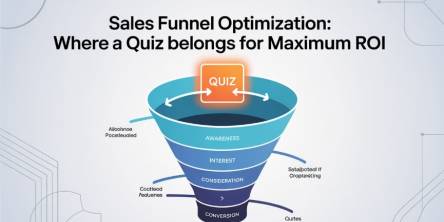Overcoming Financial Services Challenges through Legacy Application Modernization

In the ever-evolving financial services landscape, industry challenges are numerous and complex. From stringent regulations to rapidly advancing technology and changing consumer expectations, financial institutions face many obstacles. Looking at the financial services market, it becomes clear that companies in this sector operate in a highly regulated environment, with businesses subject to many challenges. Adhering to these regulations can be complex and costly. Then there are legacy applications — they cannot be easily adapted to this market's changing requirements, thus steamrolling a financial business' ability to protect its data, ensure compliance, and more. This is where legacy application modernization comes in!
However, embracing legacy application modernization can meet these challenges with innovative solutions that drive efficiency, compliance, and competitiveness. In this blog, we will explore the key challenges of the financial services sector and how legacy application modernization plays a pivotal role in overcoming them.
In this article, ladies and gentlemen, I will walk you through some of the main challenges for the financial services company that can be addressed by legacy application modernization.
What is Legacy Application Modernization?
It updates and improves a company's current software systems to make them more efficient and compatible with modern technologies. Legacy app modernization aims to enhance the performance, functionality, and maintainability of a company's software systems.
How Does Legacy App Modernization Help the Financial Services Market?
Legacy application modernization can help the sector address many of its challenges by updating and modernizing legacy systems, thus enhancing their agility and responsiveness to regulatory changes. Let us also take a closer look at the many challenges with which app modernization can help.
Key Challenges that Legacy Application Modernization Can Help the Financial Services Market With
- Outdated Systems: It is not hard to see that obsolete apps typically do not have the agility to help companies keep pace with the market's evolving requirements and that of customers. Legacy application modernization can help by either replacing or updating legacy systems, thus making them more conducive to integration with new technologies and services.
- Cost transformation: As you, I, and pretty much anyone even vaguely familiar with the concept of legacy apps know, legacy apps are expensive to maintain. Modernizing such apps helps streamline operations, cut down hardware and software maintenance costs, and optimize resource utilization, thus helping save money.
- Regulatory compliance: The financial services market is understandably subject to stringent regulations. Unfortunately, it can be hard to keep up with regulations with outdated systems since they may not quickly adapt to new standards for reporting, data security, customer protection, etc. Modernizing is a reliable way to integrate the required features for compliance.
- Lack of interoperability: In the world of financial services, it is imperative that systems can speak to one another to ensure smooth workflows at all times. Since outdated systems tend to lack the required interfaces and interoperability features, modernization helps by improving such systems' capabilities in terms of compatibility and integration.
- Market competition: The fact that the financial services market is intensely competitive is no secret. In such a market, innovation is critical for survival, and legacy app modernization helps with that by empowering organizations to develop new, innovative solutions quickly.
Final Words
The intense challenges that the highly regulated and competitive world of financial services faces are an undeniable reality. And legacy systems only impede companies' efforts to grow and succeed. App modernization, then, comes in as the perfectly transformative solution, helping financial services providers enhance their agility and responsiveness. If you, too, are ready to revamp your legacy apps, I suggest you start looking for a trusted provider who offers services for legacy application modernization.
Similar Articles
In 2026, Microsoft Excel continues to power the U.S. business ecosystem, supporting over 80% of financial modeling, 70% of operational reporting, and nearly 65% of analyst-driven decision workflows across enterprises.
The rapidly growing volume and speed of digital transactions have had a whole lot of implications for businesses
We live in the age of cloud computing. That's plain to see. However, what may escape many are the operational and financial challenges of managing multiple independent clusters.
Times have changed and how! Take modern technology and the fast-paced digital economy, it is driving. Given the market conditions, any company's infrastructure has become more than just a technical detail.
It has been for everyone to see that the modern digital economy is distinguished by high volume, real-time financial transactions.
Business success has become reliant on efficiency and agility of the underlying technology infrastructure. Clearly, companies now depend on cloud computing to provide seamless services while managing exponential data growth.
Hospitals operate in environments where availability and patient safety are paramount at all times. As medical supply chains expand and regulatory oversight becomes more demanding, manual tracking methods introduce delays and risk.
Every sales funnel has one core goal: turn attention into revenue as efficiently as possible. Yet many funnels leak value at critical stages—visitors bounce, leads go cold, and sales teams chase prospects who were never a good fit.
Decentralized Finance (DeFi) has transformed how users earn passive income through blockchain-based financial systems. Among its most popular use cases,









